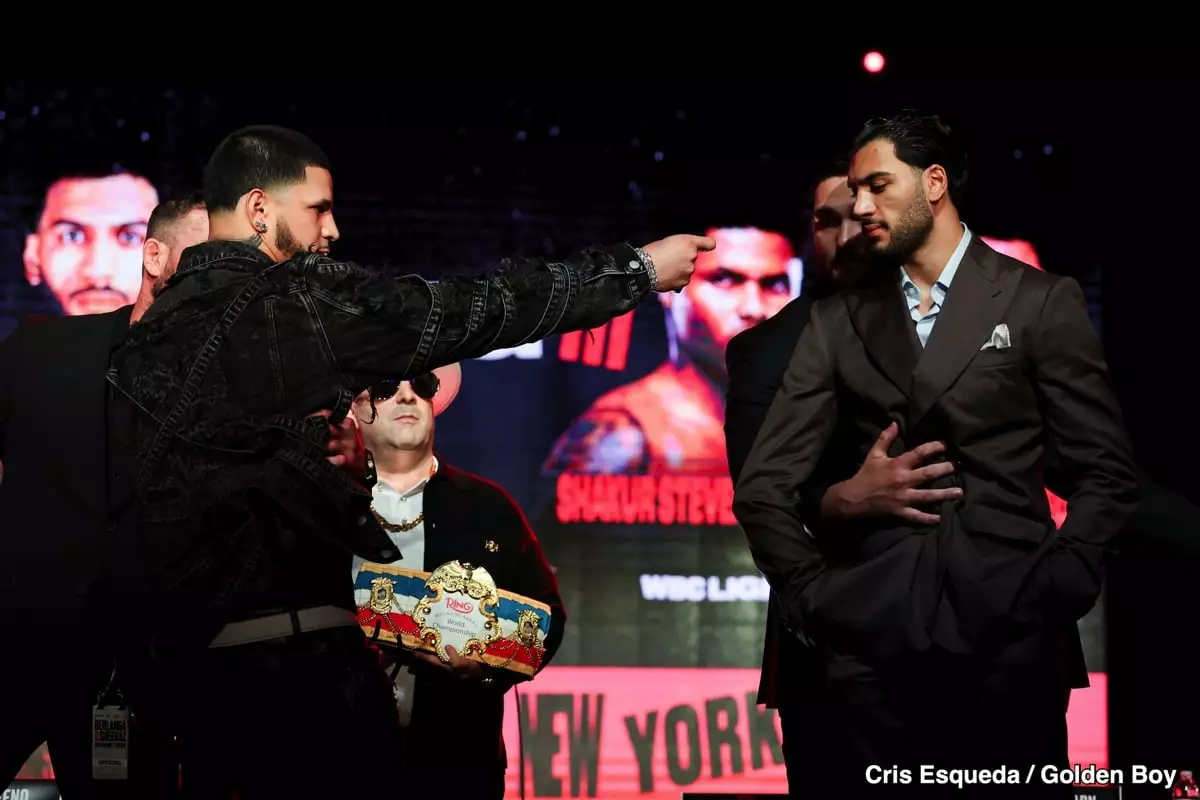Edgar Berlanga’s recent declaration that he has “already beat” Hamzah Sheeraz in his mind highlights an increasingly common trend in boxing: using psychological tactics as a precursor to physical battles. Berlanga’s approach isn’t just about in-ring skill; it’s a war of perception. By envisioning Sheeraz as being as formidable as Canelo Álvarez, Berlanga attempts to elevate his focus and prepare for the toughest challenge ahead. However, this self-assured mindset, while potentially empowering, carries risks if it blinds a fighter to the realities of his opponent’s capabilities and his own limitations.
Berlanga is betting heavily on mental warfare, aiming to unsettle Sheeraz before they even touch gloves. He perceives Sheeraz as distracted and overreaching by already eyeing a bigger fight with Álvarez, implying psychological vulnerability. Yet, such mind games only have merit if Berlanga can translate them into tangible success inside the ring. Confidence alone cannot make up for tactical deficiencies, defensive lapses, or a lack of adaptability.
Reality Check: Berlanga’s Troubled Trajectory
The narrative of Berlanga’s career thus far complicates the hype. Once hyped as a rising star cushioned by protective matchmaking, Berlanga’s early undefeated streak owed much to facing opponents at the lower end of the spectrum—so-called “tomato cans.” Top Rank’s management shielded him with carefully curated fights that inflated his record but not necessarily his ringcraft.
When the competition level rose, his vulnerabilities surfaced. His recent performances, especially against mid-tier opponents, have been uneven. The Alvarez fight exposed Berlanga’s shortcomings on a global stage, underscoring that his success was largely manufactured rather than earned through rigorous competition. His decision to switch promoters from Top Rank to Eddie Hearn’s stable indicates a search for better opportunities, yet it also underscores that he has yet to solidify his place among the elite.
Given this context, Berlanga’s claim to already have mentally defeated Sheeraz feels like either an act of bravado or a desperate attempt to forge confidence where it may not be fully justified.
Hamzah Sheeraz: Underestimated or Overrated?
Sheeraz is coming off a somewhat controversial draw against Carlos Adames, a result that left both fans and critics puzzled. His record remains impressive on paper but lacks the defining win that would mark him as an undisputed contender. Berlanga’s suggestion that Sheeraz is eager to dodge fighting in New York and chase bigger names may reflect real promotional pressure, yet it also risks underestimating a competent and hungry opponent.
In boxing, underestimating an adversary is often a fatal error. Fighters who tilt at shadows or view opponents merely as stepping stones tend to stumble. Should Berlanga fail to bring discipline and respect to this matchup, he risks not only losing but further damaging his credibility once more exposed against superior opposition.
What Fans and the Sport Deserve
Boxing’s fanbase is hungry for genuine competition and fresh challenges rather than recycled matchups and promoter-driven narratives. Berlanga’s early inflations and quick jump to a Canelo rematch feel emblematic of a sport sometimes caught between building stars and manufacturing marquee events. True growth comes from rigorous tests and earned progressions—not by circumventing opponents through promotional machinations.
Fans want to witness fighters like Christian Mbilli, Osleys Iglesias, Lester Martinez, Janibek Alimkhanuly, and Yoenli Hernandez rise because their skill and performances have warranted a spotlight. They represent the fresh blood and the unvarnished meritocracy that boxing promises but sometimes fails to deliver.
In that light, Berlanga’s self-assurance is simultaneously his most striking asset and his most precarious liability. If he can harness that confidence and refine his skillset, he might justify his ambitions. But should he allow overconfidence to foster complacency, he might soon join the long list of promising fighters who burned too bright, too fast—and burned out.

